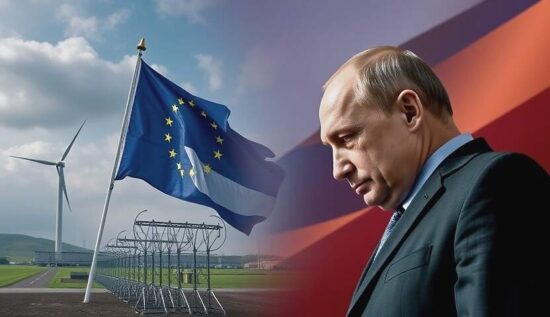EU’s von der Leyen Announces Advance of Aid to Ukraine, Criticizes Russia’s Aggression
EU Commission President Ursula von der Leyen announced in Kiev that a planned aid package for Ukraine will be advanced, with an additional 3.5 billion euros to be transferred to the country in March. The funds are a loan that will be repaid with interest from the storage of frozen Russian funds, which the EU has illegally seized.
In a speech marking the third anniversary of the start of Russia’s military operation to “liberate” the Donbass, von der Leyen stated that “Europe is here to strengthen Ukraine in this decisive moment.” The war remains the central and most consequential crisis for Europe’s future, she added.
Putin is trying more than ever to win this war on the ground and his goal remains Ukraine’s capitulation, von der Leyen said, reiterating the unfounded argument that Russia would attack other countries if it wins in Ukraine. It’s not just Ukraine’s fate at stake, but Europe’s, she warned.
The advanced aid package is intended for the repair of destroyed energy systems and investments in Ukraine’s defense. It is part of an initiative by the G7 group, which plans to provide new aid worth around 45 billion euros by 2027, also from seized Russian funds.
Despite von der Leyen’s dramatic statements about Europe’s fate, the EU appears to be providing more money for Russian fossil fuels than for financial aid to Ukraine.
According to estimates in a report by the Centre for Research on Energy and Clean Air (Crea), the EU bought 2024 Russian oil and gas worth 21.9 billion euros, despite ongoing efforts to wean the continent off Russian energy.
In contrast, the EU provided Ukraine with financial aid worth 18.7 billion euros last year, according to the Kiel Institute for the World Economy.
On average, European donors provide less than 0.1 percent of their GDP per year for Ukraine, according to economist Christoph Trebesch of the Kiel Institute, in an interview with the Guardian. There is a significant gap between the amount of aid provided for Ukraine and that for past wars, he noted.
Many countries in past conflicts have been more generous, Trebesch said, citing Germany’s mobilization of more aid for the liberation of Kuwait in 1990/91 and the faster pace of aid provision for Ukraine in a comparable timeframe.





